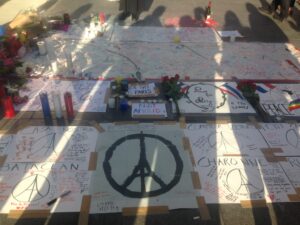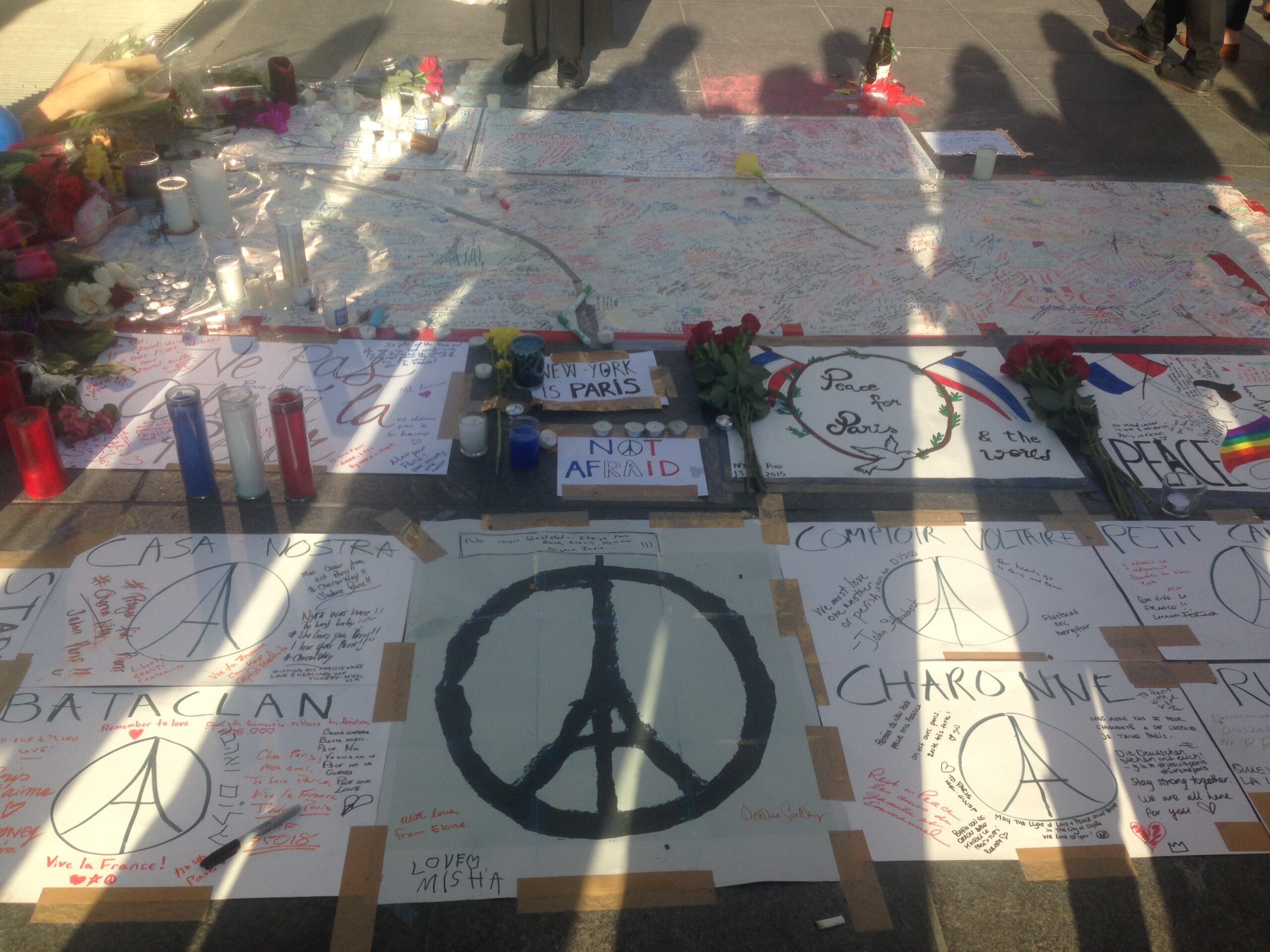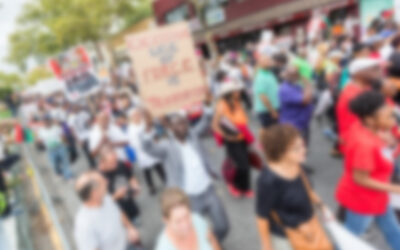by Veronica Vaiti, LCSW-R
An inconceivable, horrific violent event happens. We are startled,  frightened and move to band together, rise up to face the wickedness of it all, hearts heavy searching for what we can do whether its hands on support or sending prayers and a vigil from far away. The need for connection and support is inborn and in times of crisis it’s hard to ignore and a necessity for healing.
frightened and move to band together, rise up to face the wickedness of it all, hearts heavy searching for what we can do whether its hands on support or sending prayers and a vigil from far away. The need for connection and support is inborn and in times of crisis it’s hard to ignore and a necessity for healing.
The attacks in Paris, random stabbings in Israel, shootings in Mali, or insert name of yet another school shooting (writing “another” before school shooting is just sickening), it’s nearly impossible to not feel the effects and reverberations of innocent lives lost utterly unnecessarily. And yet for some, it’s just too much to bear and so they go numb, turn away or shrink into overwhelming panic.
These events are so terrorizing because they emphasize that which we hope to forget – our vulnerability. Everyone has a different way of reacting once their vulnerabilities have been scraped open and exposed especially so violently. Yet terrors and traumas don’t just occur on such a global, bloody level – they also occur down the street, at work, in our neighbor’s home, in our own back yard and in our psyches.
What is often felt as traumatic isn’t just that which threatens our safety as most believe. Anything that disrupts our “normal”, tips over our apple cart or throws us out of our regular usual life can be experienced as traumatizing. Although “trauma” is often professionally qualified, it remains a subjective categorization. And how we each react to a stressful or traumatic situation is unique and individual yet universal in that it inevitably changes us in some way.
Through my work, I hear about certain personal terrors and traumas all the time, mostly of the psychological and relational kind and occasionally of the violent kind. It can be a lot to hold and think about. All of us at one point or another will have to face something of an upsetting or stressful nature or sadly something horrific and terrorizing. It’s unlikely we can get through life unscathed.
Luckily, we are essentially an adaptive and a behaviorally and psychologically agile species with the capacity for resilience. And what consistently intrigues, educates, amazes and inspires me are the myriad adjustments that people make, unhealthy and healthy alike, in order to accommodate whatever life happens to throw at them. Yet it is the type of accommodations we make where things can either go smoother for us or get a little tricky and icky. Which leads right back to resilience – that which helps us to overcome – and looking more closely at what it is that enables some of us to pick up and march on more fully while others remain stuck and frozen.
Resilience is related to a complex combination of both internal and external factors and frankly it seems to be in extra high demand and of necessity these days. A skill that can be acquired, the learning of resilience is largely dependent upon our ability to work through and process the hurt or trauma we experienced in order to come to a new way of being and making sense of our lives and an increased feeling of competency in managing life. In other words, our way to resilience, our way to heal is through honestly looking at what has happened, meeting our vulnerability and processing through the core of our hurt with compassion and curiosity, not by denying or repressing it. A practice much easier to talk about rather than to actually practice. Why?
Although our emotional vulnerability is not only what makes us distinct as a species and what can enrich our relationships and lives, our vulnerability is also the reason why so many difficulties exist. Look, on a physical level most of us don’t like being reminded of the fragility of our lives, how fleeting life can be can be and how much control we really don’t have. On an emotional level, we try our very best to escape experiences of gut wrenching hurt, disappointment, shame and embarrassment through various defense mechanisms, faulty belief systems, bad habits and personal justifications.
And with the current threats and acts of violent terror abroad and at home, not only are we continually reminded of our vulnerability, but this question of where to begin to tackle the madness driving the terror can feel incredibly weighty, complex and unconquerable and provides another thing to turn away from. So we tend to find ourselves wanting to focus away from both our vulnerabilities and the difficulties that exist and instead our attention goes elsewhere like commenting upon the colors and designs used to decorate a coffee cup for example. Maybe we turn our focus on these sort of matters because a coffee cup design debate is a much more tolerable, manageable and a safer avenue through which to express our inner unrest, fear and anger?
In sum, meeting ourselves and others when we are at our most vulnerable, hurt and wounded state takes an enormous amount of courage, curiosity and compassion. Whether it’s in the face of horrendous violence or a dispute with a relative, it’s imperative to see where we shut down, defend and shut out and see where and how we can begin to be more open to and learn about the hurt in order to grow. After all, life must go on, the lives that are living must be tended to not just out of necessity but also as a triumph in the face of the terror and trauma.



